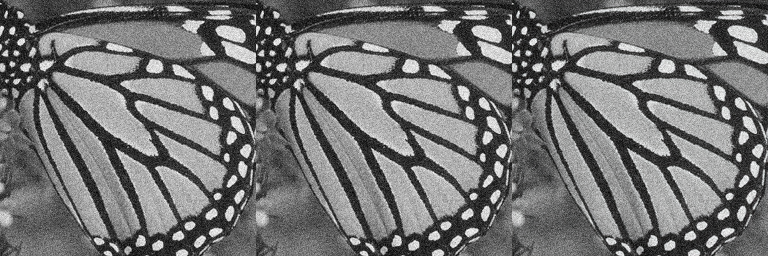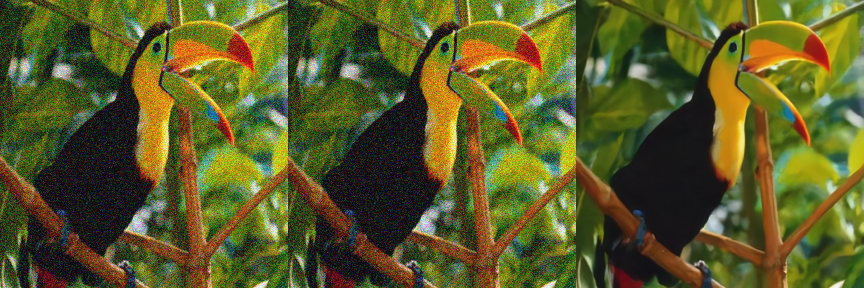No. Basically, you should know noise models before training because training data should be created through degrading clean images by the noise models. If you train a model using several types of noise models, you might be able to denoise a noise image even if the noise type of the image is unknown, as long as the noise type is one of the noise types used in training.

 I add noise to Set5 images with ImageJ and let one of them as a grayscale image.
By using ImageJ (Process > Noise > Add Noise) then (Image > Type > 8-bit).
I got saved image as the left one.
I add noise to Set5 images with ImageJ and let one of them as a grayscale image.
By using ImageJ (Process > Noise > Add Noise) then (Image > Type > 8-bit).
I got saved image as the left one.
If i had a image,but i don't know the noise type of it, can it be denoised? and which model should i use